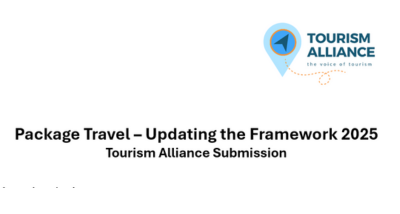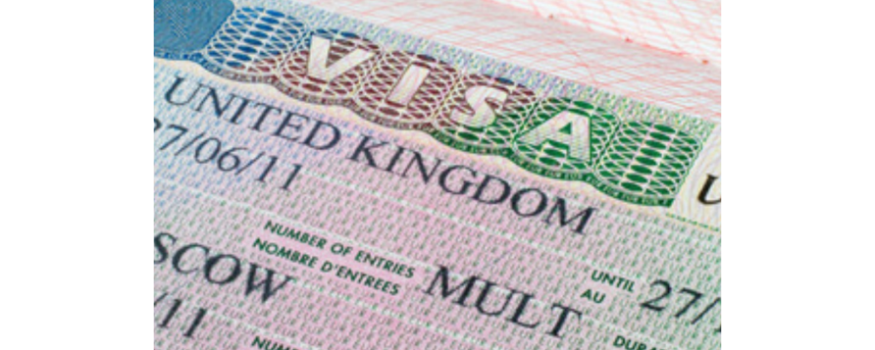UKinbound, The Tourism Alliance and English UK, are calling on the Chancellor to reverse the Government’s recent announcement to ‘significantly increase’ visa application fees as part of the new public sector pay deal. They have stated that this decision will have an “incredibly detrimental economic impact on the UK inbound tourism sector.”
The key organisations, which represent hundreds of businesses and operators key to the UK inbound tourism sector, have united in an open letter to the Chancellor to highlight their “upmost concern” at the fee increase which will render the UK “uncompetitive compared with many other countries, including our nearest competitors across the EU.”
On 13 July, the Government announced plans which will mean visitor and business visa fees will be hiked by 15%, and 20% for all other visas, in order to fund the public sector pay increase. This follows the 5% visa fee increase which was already introduced last year. These changes mean that the cost of a five-year multiple entry visa will be going up from £670 to £770. By way of comparison, the US charges Chinese visitors £135 ($155) for a 10-year visa. Under these new rules, a 10 year visa from China to the UK will now cost £962.55.
The industry open letter condemns this increase, stating it is “undeniable that this exorbitant cost will put off tourists visiting the UK”. The UK tourism industry already faces significant challenges, and this competitive disadvantage already existed before these measures were taken. In 2019 the UK ranked last out of 147 countries in the World Economic Forum’s global price competitiveness for travel and tourism.
Joss Croft OBE, UKinbound, CEO said: “The Government’s announcement of this significant increase to visa fees is catastrophic and could not have come at a worse time for our industry, which is still striving to recover to pre-pandemic levels of growth.
“The UK is still struggling to recover to 2019 levels, whilst our competitors have grown beyond recovery. The next six months are critical to our industry’s recovery and its ability to bring significant new export revenue, yet this announcement only places us at a further economic disadvantage. This is an industry worth £28.4bn in exports in 2019 – more than car manufacturing exports – and one that has the potential to grow at least twice as fast as the wider UK economy. Why the Government thinks that this anti-growth measure is advisable, is beyond belief.
“The UK Government must reverse this ill-considered fee increase and focus on implementing visitor-friendly policies to properly welcome tourists to our country. The economic growth potential of the UK tourism industry is huge, and therefore, its growth must be supported and recognised, not penalised or suppressed.”
Richard Toomer, Executive Director of The Tourism Alliance said: “The Government needs to recognise that it doesn’t make these changes to visa policy in isolation. It does so in a competitive global environment and we are already falling way behind where we should be to attract people to come, spend their holiday time here, and spend their money. The Government have already had to delay by a year when it expects inbound visitor numbers to fully recover from Covid, while many places in Europe are now back to 2019 figures and beyond.
“There are lots of fantastic reasons for visitors to come to the UK – our heritage, culture, vibrant cities, beautiful landscape and coast, brilliant attractions, and great event venues. But these pull factors will only go so far, and if we keep putting barriers up, we will continue to struggle to encourage people to come and experience them.”
Jodie Gray, English UK, CEO said, “While we support the pay rises for our doctors, teachers and nurses, this is not the right way to fund them. UK English Language Teaching and the wider tourism sector are export industries which bring much-needed revenue into our nation. If visa and health fees become uncompetitively high, we risk losing that revenue and the jobs that these sectors support. This plan is incredibly short-sighted, and we believe must be reversed before it takes effect in October.”
Explore Our News And Publications

3 July, 2025
Thank you for the opportunity to provide input on updating the Package Travel Regulations in[…]
8 April, 2025
Representatives from the tourism industry have written to Ellie Reeves MP, Minister with responsibility for[…]

22 March, 2025
The slide deck from the 2025 Tourism Insights Conference held on 18th March 2025.
Subscribe To Our Newsletter
To be kept up-to-date with our activity and events please subscribe to our mailing list.




